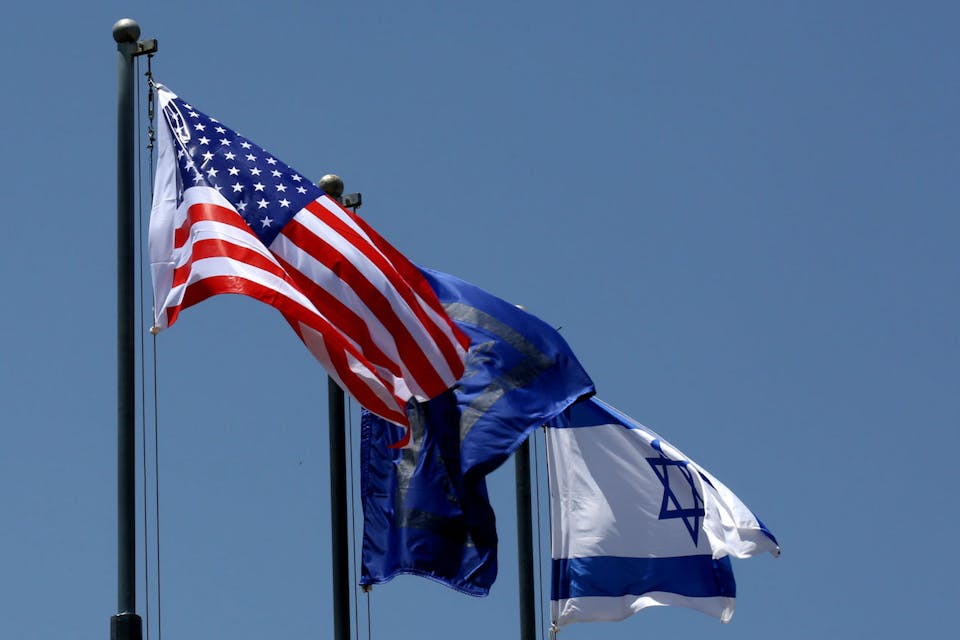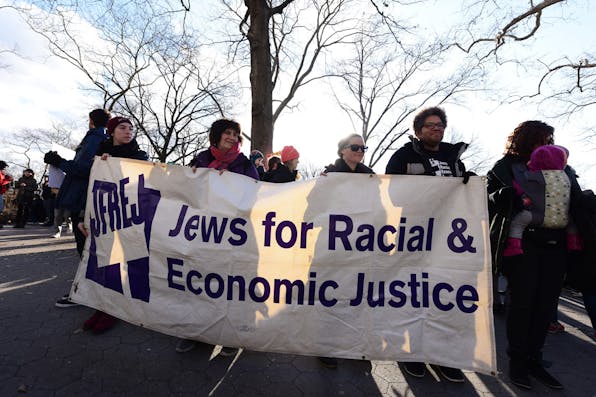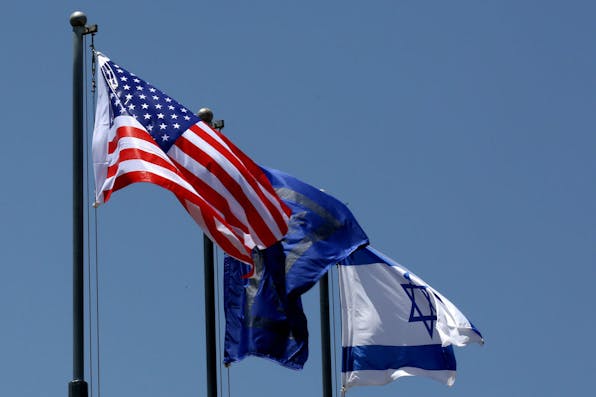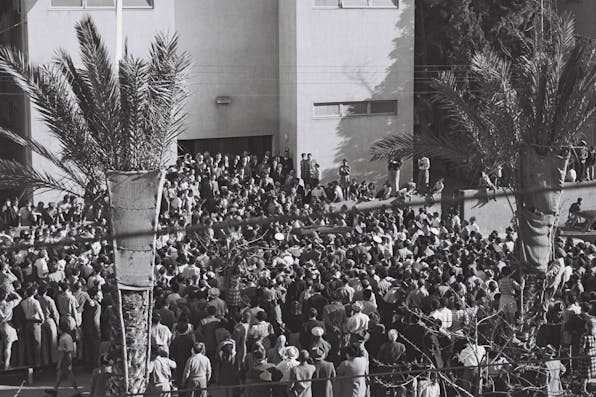
May 23, 2017
How the Ebb-and-Flow of American Politics Affects American Jewish Attitudes toward Israel
After the fall of the Soviet Union, progressives began to picture the U.S.-Israel relationship as the embodiment not of enduring American values but of bad old “hegemonic” habits.
In his quest to discover the sources of the growing rift between American Jewry and Israel, Daniel Gordis convincingly argues that, rather than being traceable to the character of Israeli policy vis-à-vis the Palestinians, or to changing patterns in American Jewish life, the rift is over issues of “moral and political essence and ideology”—issues of, in a word, identity. He proceeds to diagnose four divergent “political and cultural assumptions” that, taken together, expose the ways in which Israel and America represent “two fundamentally different if not antithetical political projects.” Although the resultant tensions between Israeli and American Jews are “as old as Israel itself,” rarely if ever have they generated the fissures currently dividing the two communities. The question, then, is: why now?
In what follows, I mean to expand on the reasons advanced by Gordis with some background reminders from American political history. This history shows that inter-communal tensions are not the only or even the most important factors in the rift. Although, as Gordis notes, suspicion and misunderstanding plagued relations between American Jews and the Jewish state from Israel’s inception, they were also tied in great part to a tension that pervaded U.S.-Israel ties more broadly, and that has its locus in the shifting priorities of American foreign policy.
In May 1948, President Harry Truman swiftly extended diplomatic recognition to the newly born state of Israel. Nevertheless, during its War of Independence, he also imposed an arms embargo that imperiled Israel’s ability to repel invading Arab armies. For his part, Truman’s successor Dwight Eisenhower at first distanced America from Israel as he sought to win over Gamal Abdel Nasser and convert the Egyptian dictator’s influence into coin on the Arab street more generally. His administration even established a CIA front group to counteract popular American sympathy for Zionism.
Responses to May ’s Essay

May 2017
The Vanishing of the Jewish Collective
By Hillel Halkin
May 2017
How a Changing American Liberalism Is Pulling American Jews away From Israel
By Evelyn Gordon
May 2017
How the Ebb-and-Flow of American Politics Affects American Jewish Attitudes toward Israel
By Jordan Chandler Hirsch
May 2017
Why the American Jewish Distancing from Israel Is So Heartbreaking
By Dr. Daniel Gordis